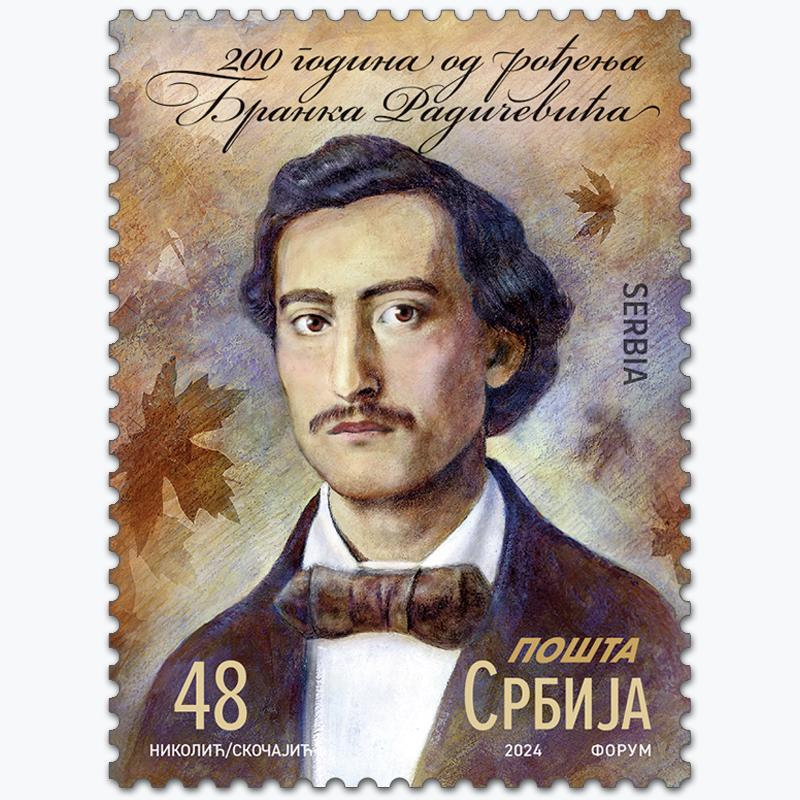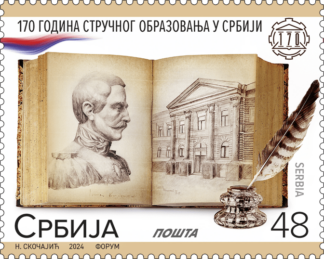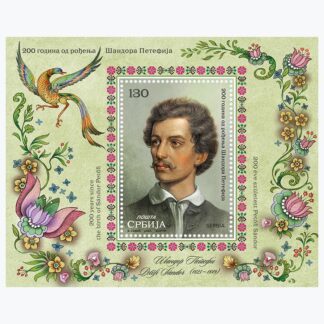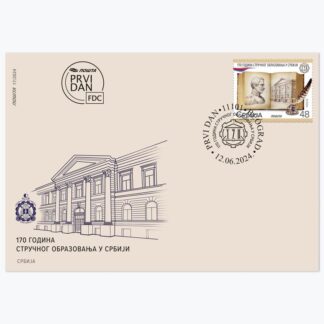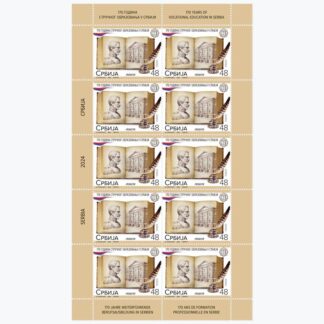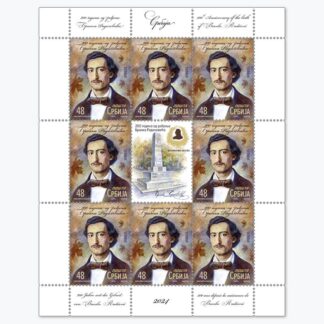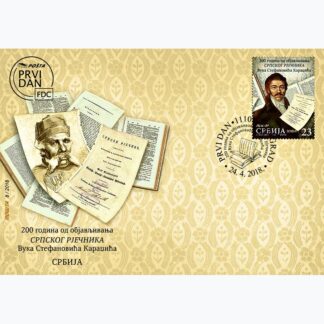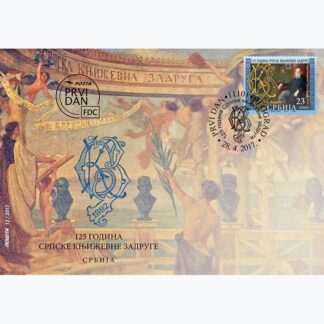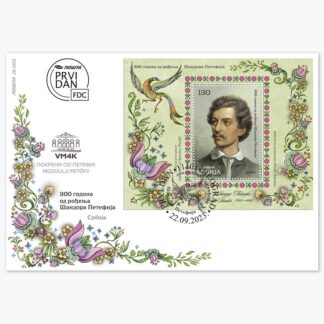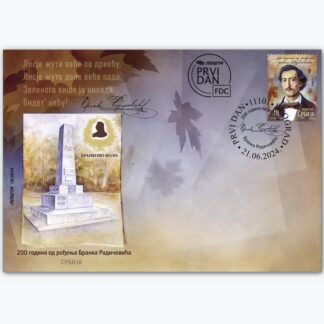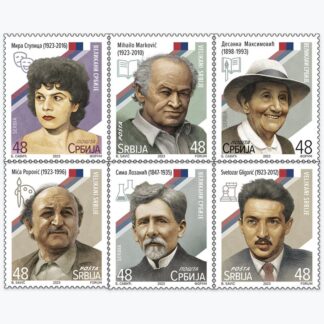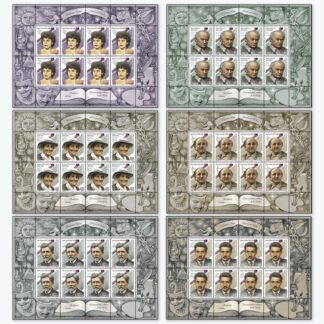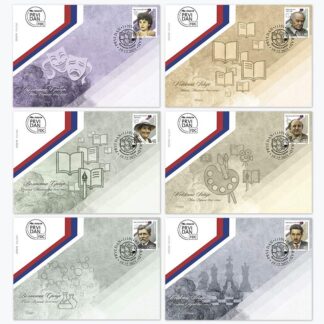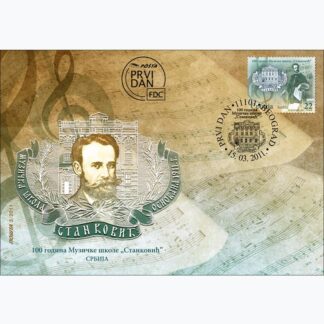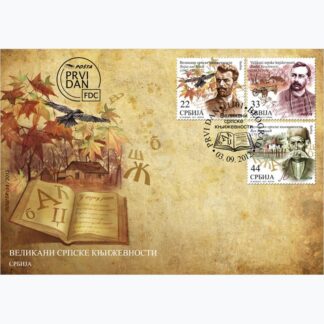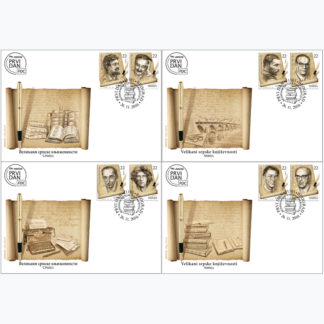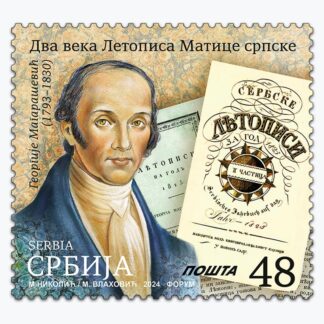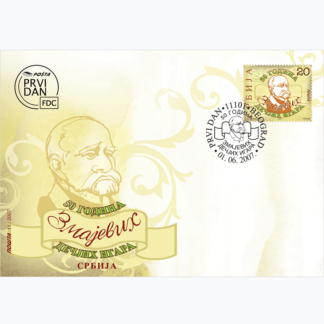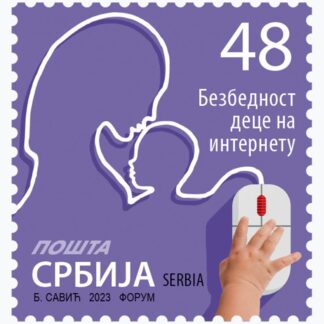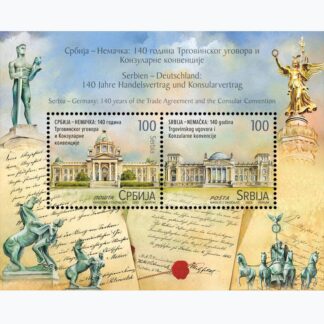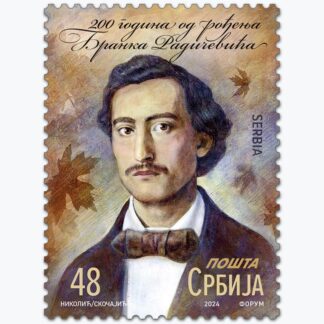Description
Branko Radičević (Slavonski Brod, March 28, 1824 – Vienna, July 1, 1853), a great poet of Serbian romanticism, introduced revolutionary changes in the development of Serbian literature and language. He was born to his father Todor and mother Ruža just before the holiday of St. Alexius, after whom he got his baptismal name. He lived in Slavonski Brod (Brod na Savi) with his family until 1830. Until 1835, he studied at Serbian and German elementary schools in Zemun. From 1835 to 1841, he studied at the Karlovac Gymnasium – "the most excellent student" with calligraphic handwriting and the best herbarium with plants from Stražilovo. In Timisoara from 1841 to 1843, he studied philosophy. There he writes his first poem in Serbian – Girl at the Well. He moved to Vienna to study law, which he did not like.
With the publication of his first book, "Poems" (1847), he translated his name from Greek (Alexios) into Serbian – Branko, and his first poetic debut caused a tectonic upheaval on the literary scene. With the encouragement of Vuk Stefanović Karadžić, the divinely inspired Branko brings into Serbian poetry the ozone-pure beauty of the vernacular language as opposed to the artificial Slavonic Serbian in the literary use of that era.
He contracted tuberculosis and died in 1853 at the age of twenty-nine. After three decades (1883), his remains were transferred from Vienna to Stražilovo. On Stražilovo, there is a monument made of mountain blocks from the areas where Serbs live: Fruška gora, Dinara, Klek, Lovćen, Plješevica, Vršački Breg, Velebit and Avala. On the top of the marble monument, in golden letters it says: TO BRANKO – THE SERBIAN PEOPLE. It is the sign of the libertarian Kolo (circle dance) from the poem The Parting of School Friends, in which Branko invites all Serbs who suffer under the yoke of the Austrian and Turkish empires to unite, naming them after the regions, (sub)regions and areas where they have always lived.
Even though he wrote only fifty-four lyrical poems, seven epics, two fragments of epics, a handful of letters and one response to criticism, the importance of Branko Radičević is epochal and inspiring for new generations. Many of the poems are anthological: As I Thought of Dying, Prayer, Reprimand, Curse, (Nikad nije vito tvoje telo), In Memory of Mina Karadžić (Pevam danju, pevam noću), Fisherman's Dream, Sorrow and Admonition, Mischief, A Traveller at Dawn and others. There are about a hundred musical compositions based on Branko's verses that leave the impression that the people themselves created these poems.
Professional cooperation: Nenad Grujičić, “Brankovo kolo”
Artistic realization: Miroslav Nikolić and Nadežda Skočajić, Academic Graphic Artist
